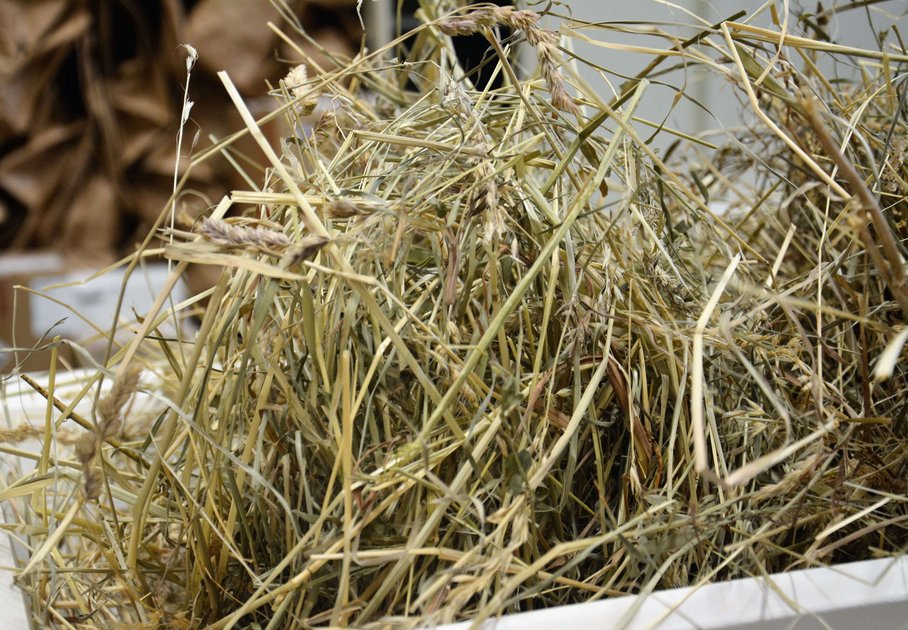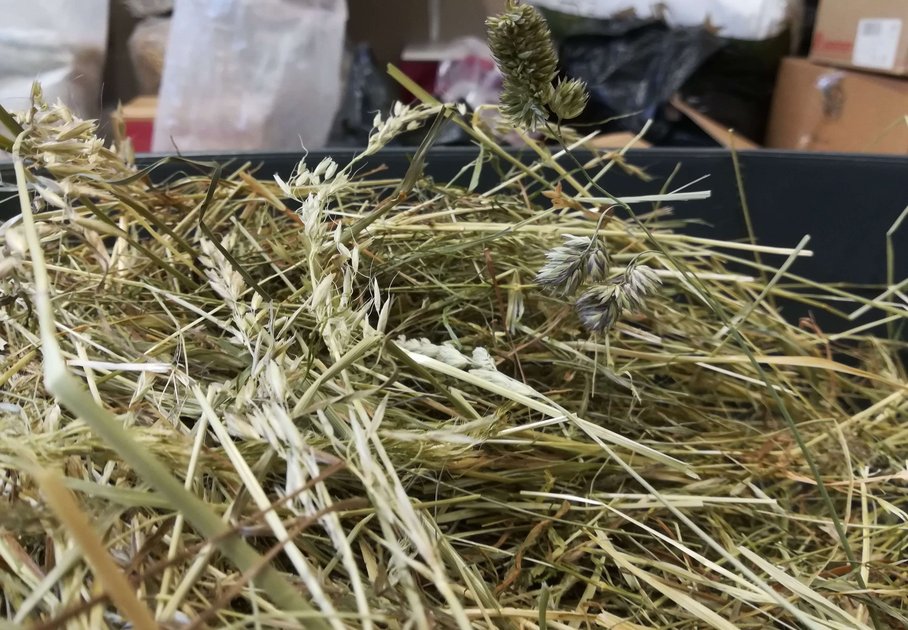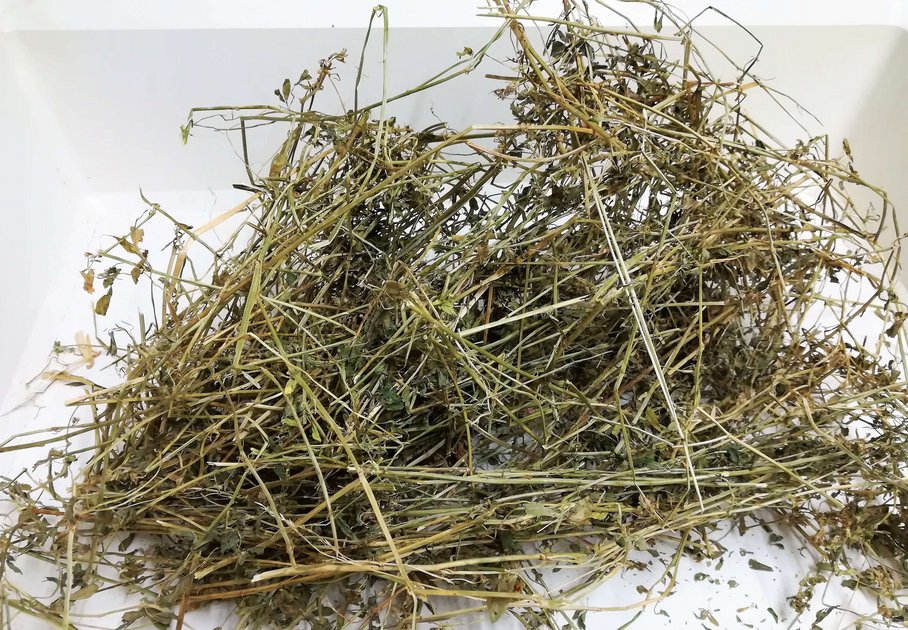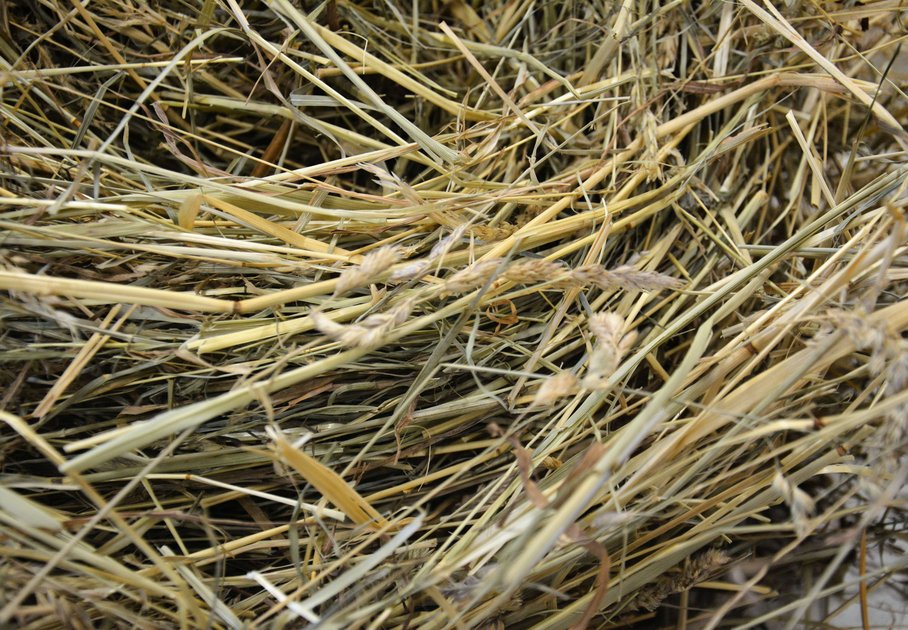- Animal Nutrition /
- Services /
- Sensory analysis of hay
Sensory testing of hay provides information on feed value, botanical composition: especially in cases of suspected poisoning, hygiene status.
Sample submission and analysis
1. Sample submission
For an analysis, a binding signed sample collection form must be completed and sent to us.
Center for Animal Nutrition and Animal Welfare Sciences
Sample Acceptance/GA Building/Ground Floor
University of Veterinary Medicine Vienna
Veterinärplatz 1
1210 Vienna
We need a sufficient amount of material for the tests.
Please send us at least
- of hay / straw approx. 3-5 kg (packed in cardboard or paper bag, no plastic, air-permeable)
- of silage / haylage (fermentation hay) approx. 3 kg (preferably vacuum-packed in plastic bags or remove as much air as possible and seal well)
- of grain / pellets / muesli 1 kg
- of liquid samples 1 liter
- 500 g of dog and cat food, but at least 2 tins/bowls
Please ensure that the samples are packaged in such a way that they reach us undamaged. You will find more detailed information on testing after damage has occurred on the form.
2. Analysis
What is in the feed or is the feed suitable for my animal?
Raw nutrient analysis
- chemically determines the content of the nutrients water, protein, fat, fiber, ash (minerals)
- provides information on the composition of feed in line with requirements and in compliance with the law
- forms the basis for ration calculations
- Further tests if necessary: Minerals and trace elements, energy content
Is the feed impaired or spoiled?
Sensory, microscopic and bacteriological examinations
- Sensory examination: color, smell (musty, fermented...), feel (dry/moist...), taste and the presence of additives (soil, pests...) provide information on the quality of the product in terms of feed value and hygienic condition.
- Microscopic examination: makes mold and pest infestation (mites) visible.
- Bacteriological examination: determination of infestation with bacteria, fungi and yeasts by means of cultivation on culture media.




